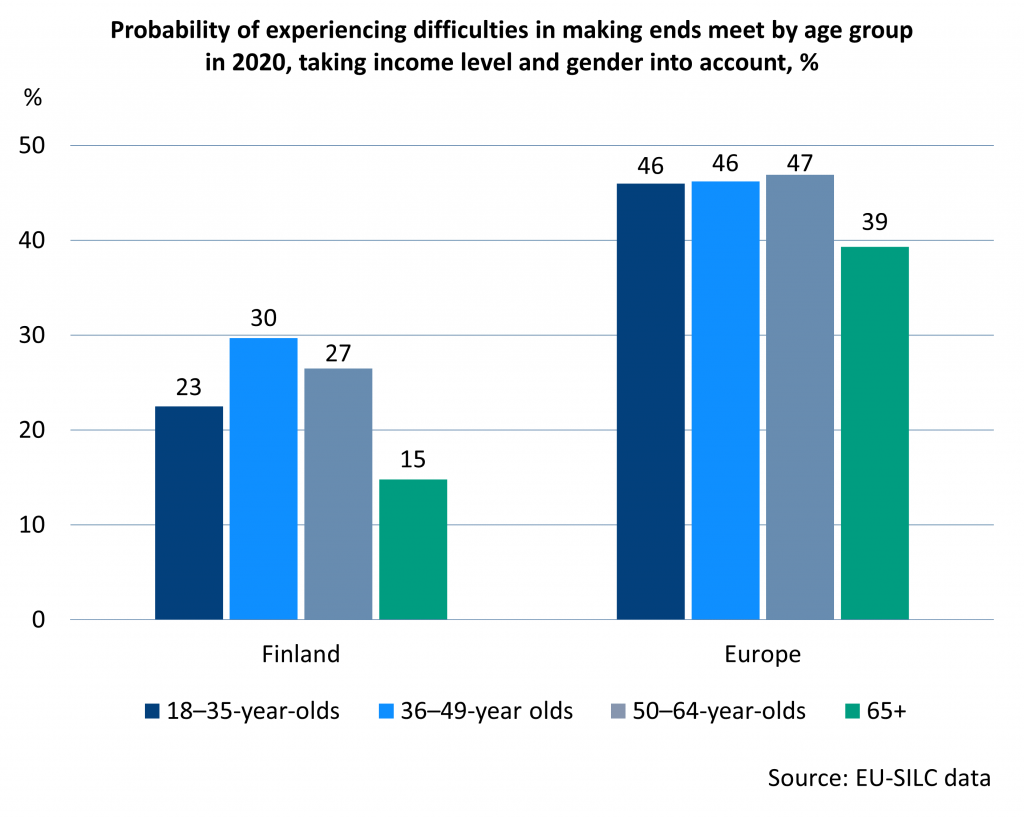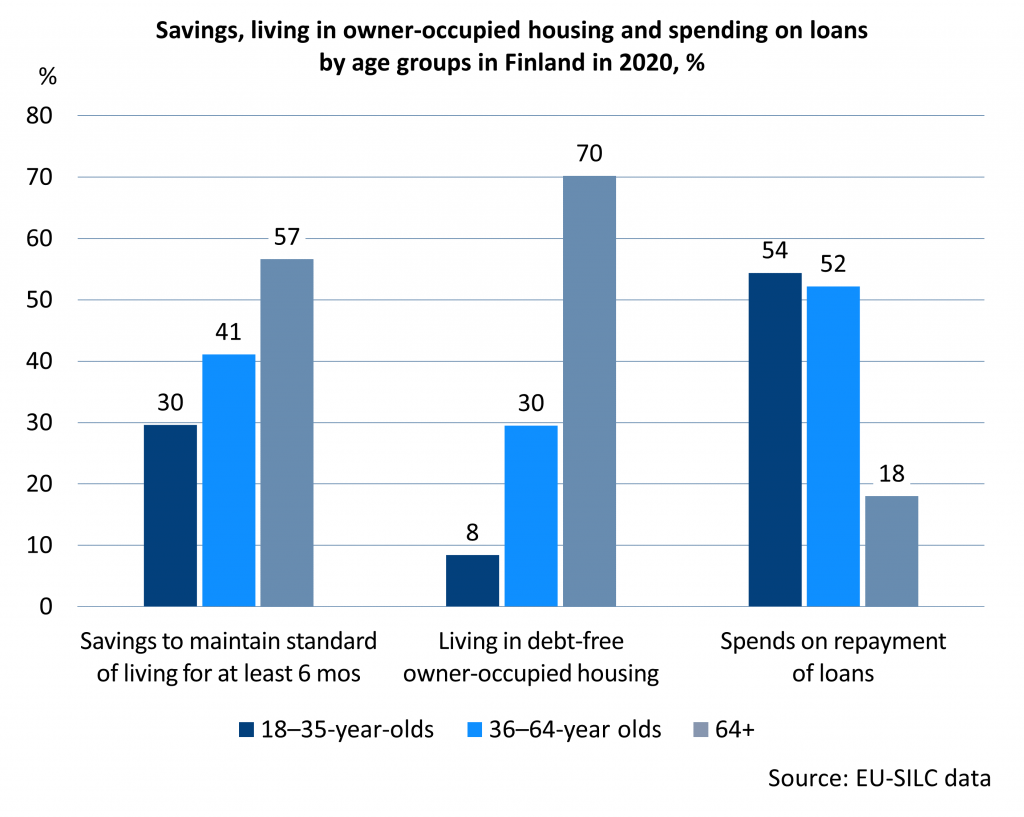Older people run lower risk of subjective economic hardship – why it this?

There is substantial variation accross Europe regarding pensioners’ subjective economic hardship. A recent research article shows that Finland is among the countries where subjective economic hardship is relatively rare and less frequent among the over-64-year-olds than among other age groups.
According to the study, in countries where economic hardship is less frequent overall, older people often experience less difficulties making ends meet than do other age groups.
The link between age and subjective economic hardship was similar in all European countries when the income level of different age groups was considered in relation to each other in each country: older people are least likely to experience difficulties making ends meet or no discrepancies were observed between age groups.
Considering the total income level in all of Europe, individuals over age 64 had a 39-per-cent likelihood of experiencing economic hardship. The likelihood for younger age groups was 7 per cent higher.
The probability of experiencing difficulties in making ends meet for older age groups varied between 7 per cent in Norway to 89 per cent in Greece. In Finland, the likelihood of experiencing economic hardship among 18–35-year-olds was 23 per cent, among 36–49-year-olds 30 per cent, among 50–64-year-olds 27 per cent and over 64-year-olds 15 per cent.

Discrepancies in subjective economic hardship between age groups accentuated among low-income individuals
Low-income individuals experience economic hardship the most, which is not surprising. What is interesting, though, is that age-group discrepancies in subjective economic hardship are accentuated among low-income individuals: particularly thosed aged 64 and over showed a smaller risk of experiencing economic hardship compared to other age groups.
This means that also older low-income individuals have other means to compensate for a low income level. A previous study brings out that, along with ageing, consumption forms and needs change or older people find it more easy to adjust to a low income than younger ones. Based on this new study, the explanation may be more concrete: disposable savings.
Particularly savings explain the lesser likelihood of experiencing economic hardship among the over-64-year-olds
Disposable savings used to maintain the standard of living explain older people’s likelihood to experience economic hardship. Tenure status also explain the phenomenon to some degree: mortgage-free owner-occupied housing is more typical among older people. In other words, many low-income over-64-year-olds have either savings or own their mortgage-free dwelling.

Based on the results of our research, both objective and subjective indicators are needed to assess and study individuals’ economic situation.
“Taking both income and assets into account at the same time may reveal important information when assessing the economic situation of different population groups. Mesuring assets and savings more extensively in data from Finland would be important for decision-making”, says Senior Researcher Ilari Ilmakunnas from the Finnish Centre for Pensions.
The research article Association Between Age and Subjective Economic Hardship Across the Income Distribution in Europe was published in the journal Social Indicators Research.
